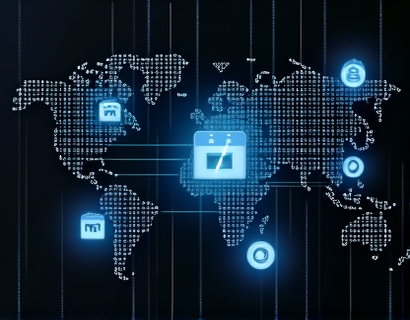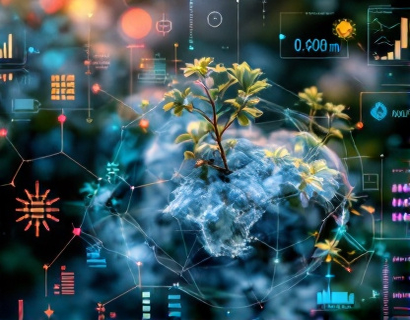Autonomous AI Agents: Streamlining Continuous Objectives for Enhanced Business and Personal Productivity
In the rapidly evolving landscape of business and personal life, the need for enhanced productivity has never been more critical. The introduction of Autonomous AI Agents represents a significant leap forward in achieving this goal. These intelligent systems are designed to manage and complete tasks continuously, allowing individuals and organizations to concentrate on their core activities. This article explores the transformative impact of Autonomous AI Agents, highlighting their benefits and strategies for integration into various operational frameworks.
Understanding Autonomous AI Agents
Autonomous AI Agents are sophisticated software entities that operate with a degree of independence, capable of performing a wide range of tasks without human intervention. These agents are programmed to understand and execute complex instructions, adapt to new situations, and learn from experiences. The core functionality of these agents lies in their ability to manage continuous objectives, ensuring that tasks are completed efficiently and effectively.
The term "autonomous" in this context refers to the self-governing nature of these AI systems. They can operate in various environments, from corporate settings to personal devices, seamlessly integrating into existing workflows. By automating routine and repetitive tasks, Autonomous AI Agents free up valuable time and mental resources, enabling users to focus on strategic decision-making and high-value activities.
Benefits of Autonomous AI Agents
The adoption of Autonomous AI Agents brings a multitude of benefits to both businesses and individuals. One of the most significant advantages is the enhancement of productivity. By automating mundane tasks, these agents allow users to allocate their time and energy to more critical and creative aspects of their work. This shift not only increases overall efficiency but also fosters innovation and growth.
Another key benefit is the improvement in accuracy and consistency. AI agents are less prone to human errors and can perform tasks with a high degree of precision. This reliability is particularly crucial in industries where accuracy is paramount, such as finance, healthcare, and manufacturing. Additionally, the continuous operation of these agents ensures that tasks are completed promptly and consistently, reducing delays and improving project timelines.
Autonomous AI Agents also contribute to cost savings. By reducing the need for manual labor and minimizing errors, businesses can lower operational costs. Moreover, the scalability of these systems means that organizations can easily adjust their resource allocation based on changing demands, further optimizing expenses. For individuals, the time saved can translate into reduced stress and increased leisure time, enhancing overall quality of life.
Strategies for Implementing Autonomous AI Agents
To fully leverage the potential of Autonomous AI Agents, organizations and individuals must adopt strategic approaches to their implementation. Here are some key strategies to consider:
- Identify Core Tasks: Begin by identifying the tasks that are repetitive, time-consuming, or prone to errors. These are ideal candidates for automation. Focus on processes that, when automated, will have the most significant impact on productivity and efficiency.
- Choose the Right Technology:
- Start Small:
- Train and Adapt:
- Ensure Security and Compliance:
Select AI solutions that align with your specific needs and capabilities. Consider factors such as the level of customization required, integration with existing systems, and the provider's reputation for reliability and support.
Begin with a pilot project to test the effectiveness of Autonomous AI Agents in a controlled environment. This approach allows you to identify potential issues, refine processes, and build a solid foundation for broader implementation.
AI agents learn and improve over time. Provide them with high-quality data and clear instructions to ensure they perform tasks accurately. Regularly review their performance and make adjustments as needed to optimize their functionality.
Data security and compliance with regulations are critical. Implement robust security measures to protect sensitive information and ensure that AI agents adhere to relevant legal and ethical standards.
By following these strategies, organizations and individuals can successfully integrate Autonomous AI Agents into their operations, reaping the benefits of enhanced productivity and efficiency.
Case Studies and Real-World Applications
To better understand the practical applications of Autonomous AI Agents, let's explore some real-world examples across different industries:
Business Operations
In the corporate world, Autonomous AI Agents are revolutionizing how businesses manage their day-to-day operations. For instance, a manufacturing company might deploy AI agents to monitor production lines, predict maintenance needs, and optimize resource allocation. These agents can continuously analyze data from sensors and machinery, identifying potential issues before they become critical. This proactive approach not only reduces downtime but also extends the lifespan of equipment.
In the finance sector, AI agents can automate routine tasks such as data entry, transaction monitoring, and compliance checks. By handling these tasks, AI agents enable financial professionals to focus on more complex and strategic activities, such as risk assessment and investment analysis. This shift not only improves efficiency but also enhances the quality of decision-making.
Personal Productivity
On the personal front, Autonomous AI Agents can significantly enhance individual productivity. For example, a personal assistant AI can manage calendars, set reminders, and prioritize tasks based on user preferences and urgency. This agent can also handle email management, filtering out spam and prioritizing important messages. By taking care of these routine tasks, the AI assistant allows individuals to concentrate on their core responsibilities and personal well-being.
In the realm of home automation, AI agents can control smart home devices, adjusting lighting, temperature, and security settings based on user habits and preferences. This level of automation not only improves comfort but also contributes to energy savings and enhanced security.
Challenges and Considerations
While the benefits of Autonomous AI Agents are clear, their implementation is not without challenges. Some of the key considerations include:
- Technical Complexity: Developing and integrating AI agents requires a certain level of technical expertise. Organizations must invest in training or hire professionals with the necessary skills to design, implement, and maintain these systems.
- Data Quality:
- Ethical and Legal Concerns:
- Dependency Risks:
The effectiveness of AI agents heavily depends on the quality and relevance of the data they process. Poor data can lead to inaccurate decisions and suboptimal performance. Ensuring data accuracy and completeness is crucial for the success of these agents.
The use of AI raises ethical and legal questions, particularly around privacy, bias, and accountability. Organizations must navigate these issues carefully, ensuring that AI agents operate within legal frameworks and respect user privacy.
Over-reliance on AI agents can create vulnerabilities. It is essential to maintain human oversight and ensure that critical decisions are not solely based on AI recommendations. This balance helps mitigate risks and ensures that human judgment remains a key component of decision-making processes.
By addressing these challenges proactively, organizations and individuals can maximize the benefits of Autonomous AI Agents while minimizing potential risks.
Future Trends and Innovations
The field of Autonomous AI Agents is rapidly evolving, with ongoing research and development leading to new innovations. Some of the future trends to watch include:
Increased Intelligence and Adaptability
AI agents are becoming more intelligent and adaptable, capable of handling more complex tasks and learning from a wider range of data sources. Advances in machine learning and neural networks are driving this progress, enabling agents to make more informed decisions and adapt to new situations more effectively.
Enhanced Human-AI Collaboration
The future of AI agents lies in seamless collaboration with humans. Next-generation agents will be designed to work alongside humans, augmenting their capabilities rather than replacing them. This synergy will lead to more efficient workflows and innovative solutions to complex problems.
Broader Adoption Across Sectors
As the technology matures and becomes more accessible, the adoption of Autonomous AI Agents is expected to expand across various sectors. From education and healthcare to agriculture and transportation, the potential applications are vast. This broader adoption will drive further innovation and create new opportunities for growth and efficiency.
In conclusion, Autonomous AI Agents represent a transformative force in the quest for enhanced productivity. By automating routine tasks and enabling focused engagement on core activities, these agents offer significant benefits to both businesses and individuals. As the technology continues to evolve, the potential for even greater impact is immense, paving the way for a more efficient and prosperous future.











































